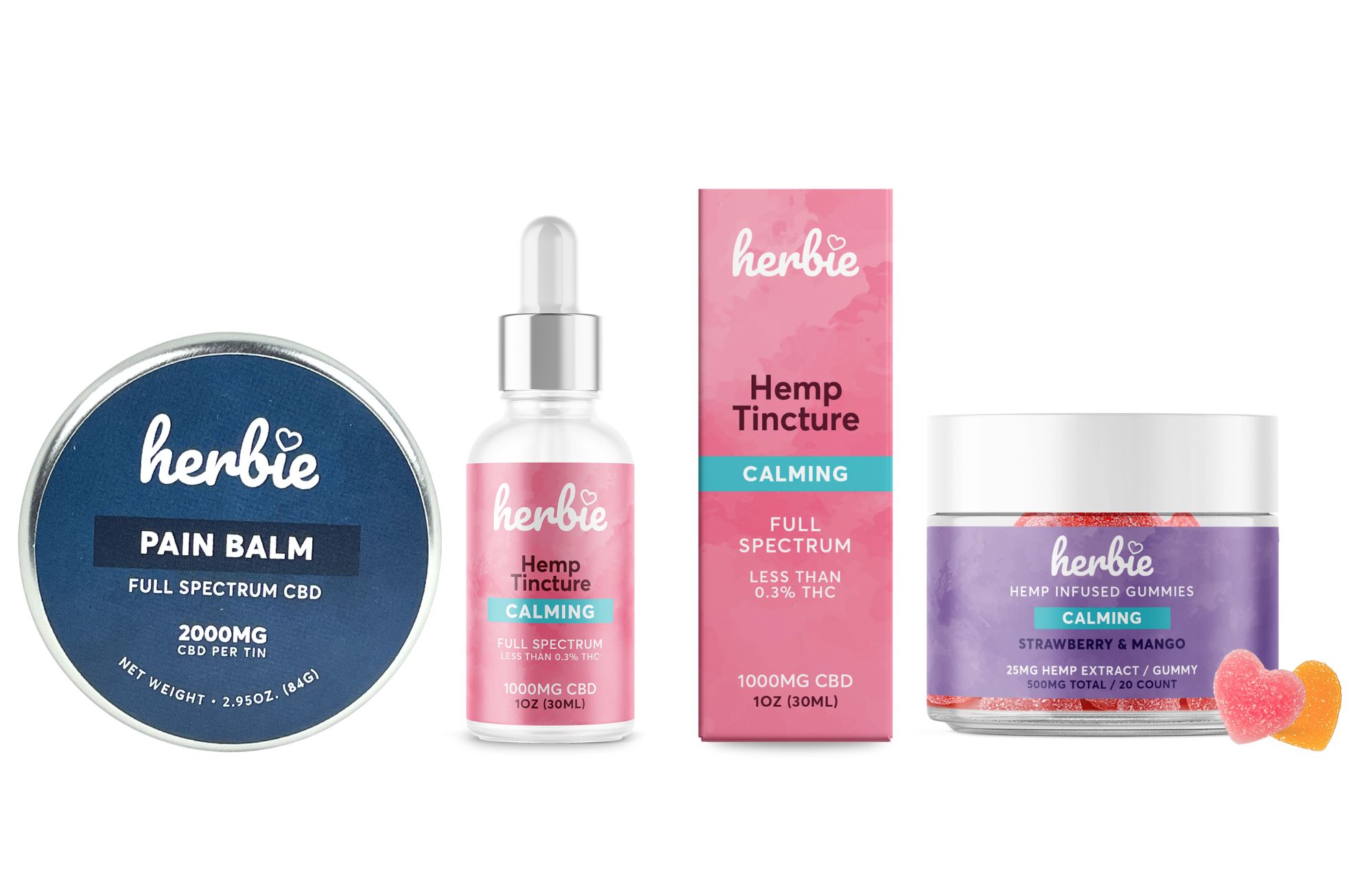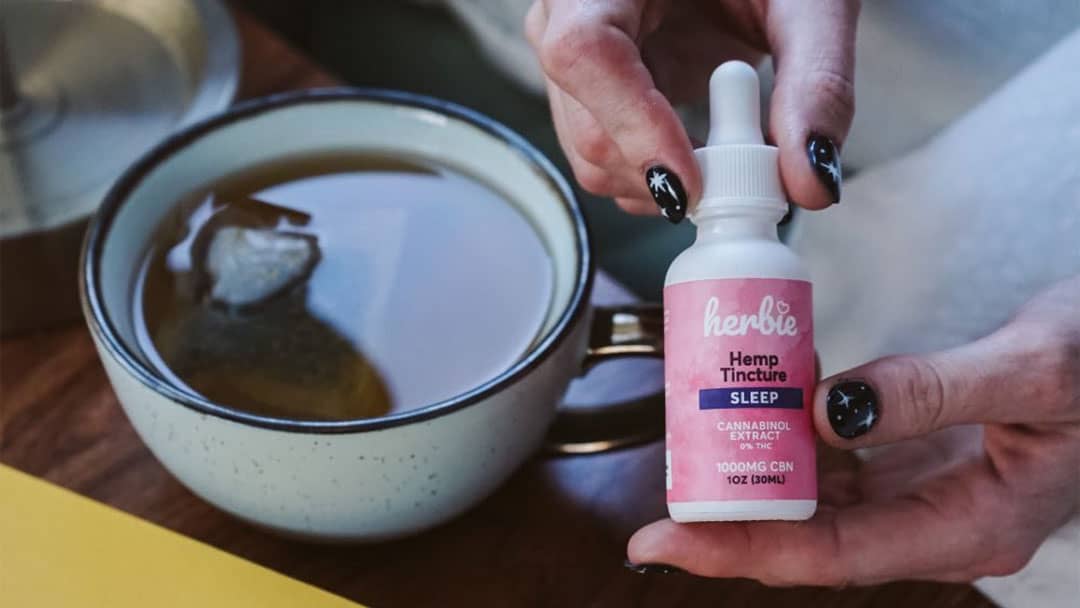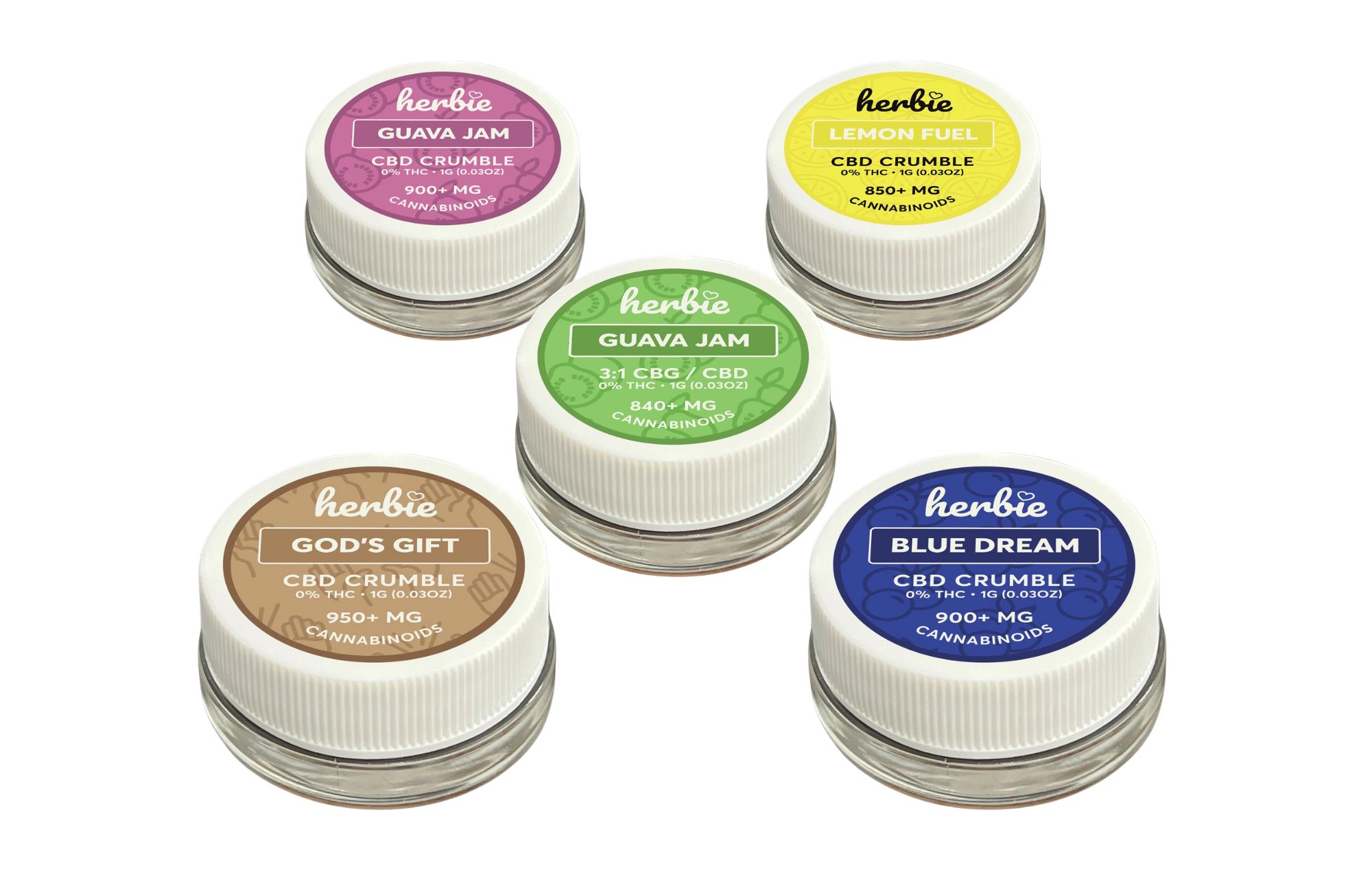Does CBD Show Up on a Drug Test?

Drug tests are used to identify specific substances, such as tetrahydrocannabinol (THC). While these tests don't necessarily screen specifically for CBD, there are a few ways that a person can fail a drug test. Some CBD products do contain trace amounts of THC, which can show up in a drug test. Before you panic at the thought of taking a drug test, there are a few things that you need to know. We'll answer all of your questions about CBD and drug tests.
Need to find high-quality CBD products? At Herbie, we have a full range of CBD and hemp items.
What Is CBD?
Cannabis sativa is cultivated for many purposes. You can use it for food, construction materials, recreational uses, and medicinal purposes. There are over 400 chemical compounds in a cannabis plant, with 80 listed as biologically active. The most active compounds are cannabinoids. You can only find cannabinoids in the cannabis plant, they are not found anywhere else in nature. These cannabinoids include cannabidiol (CBD), cannabinol (CBN), tetrahydrocannabinol (THC), cannabigerol (CBG), and cannabichromene.
When people get a "high" from cannabis, that is due to the level of THC in the product. While CBD does have some psychoactive effects, it does not have the same intoxicating properties as THC. In fact, CBD seems to have a modulating effect on THC. In addition, researchers have shown that CBD has the potential to treat certain mental health conditions, such as anxiety or depression.
Related: What Drugs Should You Not Take With CBD?
Herbie’s CBD products are derived from “hemp”, which is a federally legal, low-THC type of cannabis. Hemp-based CBD products can not contain more than 0.3% THC by weight. For example, our Calming CBD oil is made from a full-spectrum hemp extract that contains a full complement of cannabinoids, terpenes and has trace amounts of THC (less than 0.3%).
There are some CBD products that have no THC, usually because they use cannabinoid isolates, which are a more pure form of cannabinoids. For instance, our CBG and CBN products use isolates and are THC free. If you have concerns, you should review the product’s COA (Certificate of Analysis) to confirm the chemical makeup of the product. All of our CBD concentrate crumble is THC free as well.
According to the Food and Drug Administration, products with more than 0.3% THC are considered “cannabis”. The United States Drug Enforcement Agency (DEA) classifies cannabis as Schedule I drugs. CBD products that are derived from cannabis must be purchased in a cannabis dispensary.
Related: Cannabinoids and Terpenes Explained
How Are CBD and THC Different?
There is one common tie between CBD and THC: they both come from the cannabis plant. When you take CBD or THC, they will affect different parts of the brain. You already know that CBD does not have any psychoactive properties, but the same cannot be said for THC. The “high” you get from cannabis is mainly attributed to THC.
The molecular structure of CBD and THC are the same; but their atoms do have different arrangements. They are similar to endocannabinoids, which allow them to interact with our internal cannabinoid receptors.
CBD and THC do come from different sources. THC is derived solely from marijuana, while CBD can come from hemp or marijuana. Since marijuana does contain THC, some CBD products can have a trace amount of these compounds. In turn, that can cause problems with drug tests. Pure CBD products will not have THC.
How Cannabis Drug Tests Work
Most drug tests will require a sample of the individual's urine. From there, the test checks for the following substances:
- alcohol
- amphetamines
- benzodiazepines
- opiates
- cocaine
- cannabis
During the urine drug screen, there is an immunoassay test. This test will look for any antibodies that have latched on these certain drugs and their metabolites. A cannabis drug test looks for THC and any of its metabolites. If those antibodies identify a drug, it will flag the test as a positive. The federal government sets the concentration levels for certain drugs in a urine test. If the detected drug is under a certain level, it has a negative result. False-positives might have individuals undergo a follow-up drug test in some situations.
Other drug tests such as mass spectroscopy, liquid chromatography, or gas chromatography can detect drugs and their metabolites. When analyzing the result, doctors have to ensure that there are no false positives or false negatives in the test. Some tests can detect weed in the urine three days after use, while others might detect it after 30 days.
Since THC is fat-soluble, the body will store it. As the person burns the fat, it can be released as THC. Eventually, the kidneys will eliminate THC and its metabolites.
Can You Fail A Drug Test From CBD?
Theoretically, a person can fail a drug test if they consume a CBD product containing THC. CBD-rich products are derived from both hemp and cannabis, all of which could contain THC. Although some manufacturers say they eliminate THC, it can still be present. Additionally, people can receive a false positive cannabis result if they have used other drugs, such as:
- dronabinol
- nonsteroidal anti-inflammatory drugs (NSAIDs), such as ibuprofen, naproxen, and sulindac
- pantoprazole
- efavirenz
Exposure to second-hand cannabis smoke can cause a positive test on a saliva drug test. The Journal of Analytical Toxicology conducted a study where cannabis-free volunteers sat in an unventilated room with others who smoked one cannabis cigarette. When tested, the cannabis-free participants had a positive result for the drug. One study even looked at 80 urine samples. After 24 hours of exposure to cannabis smoke, the cannabis-free volunteers only had two-positive samples, none of which tested above the federal thresholds.
Related: How Long Does CBD Stay in Your System?

Conclusion
Drug tests are not used to screen for CBD. This chemical compound is not an illegal controlled substance that can produce an intoxicating effect. However, those who use CBD could still fail a drug test, especially if those products contain THC. Other drugs may interfere with a urine drug test, resulting in false positives. If you want to avoid testing positive for THC, only purchase your CBD product from a reliable source to ensure it does not contain any THC and look for products that use isolates instead of full-spectrum extracts.
Do you want to learn more about CBD and its effects? Herbie can help! Check our FAQ page, so that you can make the right decisions about your CBD products.

